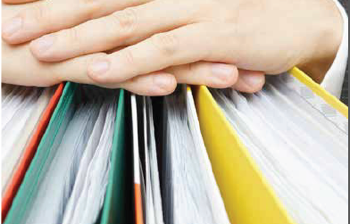Please download this article as a PDF
Download PDFTax, reliefs and allowances on different types of property income.
There are many ways to earn an income from property such as residential properties, furnished holiday lettings, commercial properties and renting out a room in your house.
The exact tax treatment and allowable expenses will differ depending on the type of property you own and your level of income.
In most circumstances income from property you personally own must be reported through a self-assessment tax return.
You will need to report income from property if you receive:
- between £2,500 – £9,999 after allowable expenses
- £10,000 or more before allowable expenses.
The government advises individuals with annual property income below £2,500 to contact HMRC directly about their reporting requirements. In addition to tax, individuals who run property businesses in England or Wales have to pay class 2 national insurance (NI) if their profits are more than £5,965 a year. Class 2 NI is £2.80 a week for the 2016/17 tax year.
Class 2 NI is due to be abolished from April 2018. It is not clear yet what impact this will have on landlords.
Sole traders and partners report and pay income tax through self-assessment, whereas limited companies will pay corporation tax on profits.
Rental income on properties owned by a business is treated in the same way as other business income.
Reducing tax
Where income is relatively small, individuals may not have to pay income tax or report the income to HMRC.
Property allowance
A £1,000 tax-free annual allowance for property income is due to come into effect from April 2017.
Individuals with property income below the allowance will no longer have to report or pay tax on that income.
Where property income exceeds the allowance individuals can choose to deduct £1,000 from their taxable profits instead of calculating exact expenses.
This simplification will be useful for those whose expenses are less than £1,000. Where expenses exceed the allowance, it will remain beneficial to continue to deduct exact expenses (although the taxpayer will still have to record expenses).
Renting out a room
Individuals who rent out furnished rooms in their home can earn up to £7,500 a year tax-free without any reporting obligations under the rent a room scheme.
The scheme is available to resident landlords and people who run a guesthouse or bed and breakfast.
Where 2 people own a property, the threshold is halved meaning that each person can claim a maximum of £3,750 in tax relief.
Rent exceeding the threshold has to be reported to HMRC via self-assessment. At this stage the landlord can choose whether to use the scheme. Those that opt into the scheme pay tax on their gross income minus the £7,500 allowance.
People who don’t join will pay tax on income after expenses and capital allowances.
Not sure when you have to report and pay tax? Contact us to discuss your situation.
Expenses
Income tax is due on profits after allowable expenses have been deducted. Different types of property have different allowable expenses.
Landlords (whether an individual or a company) of residential property can deduct day-to-day expenditure incurred while running the business from their profits.
Allowable expenses include:
- repairs and maintenance
- buildings and contents insurance
- ground rent, rent and service charges
- utility bills
- council tax
- cleaning and gardening services
- letting agents’ and accountants’ fees.
Renovation costs cannot be deducted as expenses.
Landlords of residential properties can also deduct the cost of replacing furnishing appliances and kitchenware from their profits before tax. This replaced the 10% wear and tear allowance from April 2016.
We can advise on the expenses you can claim.
Mortgage relief
Residential landlords can currently deduct all finance costs from their taxable rental profit. However, restrictions on this tax relief come into effect from the start of the 2017/18 tax year. By 2020/21 tax relief on finance costs such as mortgage and loan interest will be 20%. The new regime will be introduced gradually:
- 2017/18: 75% of finance costs, 25% as basic rate tax reduction
- 2018/19: 50% of finance costs, 50% as basic rate tax reduction
- 2019/20: 25% of finance costs, 75% as basic rate tax reduction
- 2020/21: all finance costs will be given as basic rate tax reduction.
Higher or additional rate taxpayers will see their tax relief reduced. The extent will depend on whether the personal tax allowance and tax bands change by 2020/21.
Basic rate taxpayers will not pay more tax on their property.
Furnished holiday lettings
Owners of furnished holiday homes may be able to claim plant and machinery capital allowances and certain capital gains tax (CGT) reliefs if all of the following apply:
- the property is available to let for at least 210 days a year
- it is let for more than 105 days a year
- no individual let exceeds 31 days
- you charge the market value to whoever is letting the property.
Plant and machinery capital allowances apply to items inside the property such as furniture and equipment used outside such as tools and vans.
The CGT reliefs available are business asset rollover relief, entrepreneurs’ relief, relief for loans to traders and gifts of business assets.
Losses
In general, losses can be offset against future profits from the same rental business. This means it is possible to offset expenses from 1 property against another.
Separate rules apply to furnished holiday lettings and overseas properties.
Tax when buying a property
An additional 3 percentage points is payable in stamp duty land tax (SDLT) on any property purchased as a buy-to-let. A similar rule applies to purchases in Scotland where land and buildings transaction tax replaced SDLT in April 2015.
Different rates apply when buying commercial property.
Tax when selling a property
In most cases, buy-to-let property is not eligible for private residence relief and will therefore be subject to CGT upon sale. Profits made on property above the annual allowance (£11,100 for 2016/17) will be taxed at 18% (basic rate taxpayers) or 28% (higher rate taxpayers).
Landlords will have to pay any CGT within 30 days of completion of a sale of property from April 2019. The current payment period is between 10 and 22 months.
Talk to us about making the most of your property investments.




